There’s a saying out there that entrepreneurs aren’t made, they’re born.
I don’t believe that.
I think being an entrepreneur is something anyone can learn how to do.
But you need to have a core set of abilities and the right mindset first.
Did you know that by simply being optimistic, you’re more likely to succeed as an entrepreneur?
The University of Oklahoma’s 2016 study found that during stressful economic times, entrepreneurs rely more on optimism and the advice of other entrepreneurs when it comes to business decisions, instead of actual market data.
Those “gut feeling” decisions can pay off. Intuitive decisions can be effective up to 90% of the time.
I was lucky growing up. My mom started her own daycare business, and I grew up watching her grow it into a profitable enterprise.
You can’t buy that kind of firsthand experience.
But you can teach yourself to think like an entrepreneur and get the basic skills you need before jumping into starting your own business.
But don’t just take my word for it!
These are the characteristics you need to create the perfect entrepreneurial attitude, according to scientific research.
Develop the right behaviors
Harvard Business School studied the behavior of entrepreneurs and compared it to that of non-entrepreneurs.
They identified 11 key skills and behaviors that are relevant to both entrepreneurs and employees. The study measured how well each group performed those skills and behaviors.
I was surprised by the results!
Entrepreneurs ranked significantly higher in several areas.
However, there was no difference in how they motivated a team, made decisions, collaborated with others, managed operations, or how well they did in sales.
The research shows the main difference between entrepreneurs and employees has to do with attitude, not hard skills.
Entrepreneurs dislike established structure. They’re great at networking, have a big vision, and the most important behavior of all: They’re comfortable with uncertainty.
Entrepreneurs live in a world of uncertainty.
You have to pave your own way, fund your own product, and figure out how to pay the bills when a client pays late — or doesn’t pay at all.
It’s risky, unpredictable, and as an entrepreneur would describe it: fun.
If you’re reading this and thinking, “That doesn’t sound like fun!”, then entrepreneurship isn’t for you.
Harvard’s study proves that anyone can become an entrepreneur. You just need to focus on behaving like an entrepreneur if you want to be one.
Learn how to be resilient
Resilience is a key trait of successful entrepreneurs.
Resilience is defined as adapting well to adversity and stress in both personal and professional situations.
It means brushing off discouragement and pushing through the hard times. When you’re an entrepreneur, there are a lot of hard times.
Resilience is often studied by scientists looking to uncover why some people bounce back from tragedy and trauma, while others don’t.
The results from a thirty-two-year study, first published in 1989 but relevant today, showed that a key component of being resilient is believing you have control over your own situation.
You can learn to be resilient in a number of ways, but being self-aware is crucial.
Don’t get comfortable with what life offers you. Go out and make your own fate!
Researchers also found that levels of resilience can change over time.
If a string of bad events hits a resilient person, they can lose their resilience. The trick is how you think about events.
You need to treat everything that happens to you, whether it’s good or bad, as a learning experience and a chance to grow.
How you approach the world helps determine how successful you’ll be.
Thomas Edison is the perfect example of entrepreneurial resilience.
He invented the light bulb, but not before failing over 10,000 times first.
When people ridiculed him, he responded with, “I haven’t failed. I’ve just found 10,000 ways that won’t work.”
A modern day example is Oprah Winfrey. The media and talk show star overcame intense adversity to become who she is today.
Oprah was born to teenage parents, raised by her grandmother, and later sent to live in a high-crime, poverty-stricken neighborhood in Milwaukee with her mother.
Oprah was a smart student, but living in an area with violence all around her took its toll.
She credits her father, who made her study hard and a scholarship to university with saving her life and putting her on the path to success.
But she wouldn’t be where she is today without a healthy dose of resilience and inner strength.
Be optimistic
Positivity can accomplish a lot.
It’s no secret that being confident and optimistic helps you win people over and dream big goals.
But it turns out that being a generally positive person also helps you become a better entrepreneur.
Entrepreneurs willingly take on more risk by starting their own ventures. They’re proven to be more optimistic than salaried employees in almost every aspect of life.
Millennial small business owners are leading the pack by being 26% more optimistic than their older peers.
In fact, a study in the Journal of Corporate Finance found that highly optimistic entrepreneurs were able to secure more funding and at lower interest rates, than non-optimistic entrepreneurs.
Sometimes too much optimism can dilute reality, though.
Half of all businesses fail after five years, and only one-third make it past 10 years.
But entrepreneurs have always tested higher on positivity than other groups.
A 1988 study found that 81% of entrepreneurs thought the chance their business would survive was higher than 70%.
A similar study conducted over 20 years later found the results were the same. 62% of survey respondents overestimated their first-year projected sales.
The study also illuminated drawbacks to being optimistic.
Researchers found that extreme optimism caused overconfidence in entrepreneurs, causing them to launch businesses that weren’t ready to hit the market.
Optimism is a predictor of entrepreneurial success. However, it can also cause entrepreneurs to rush into decisions without enough thought.
When I created Crazy Egg, I thought it was going to be an instant success.
I figured if the standard 2% of my 20,000+ email list (at the time) signed up for a $49/month plan, I’d be making around $20,000 in monthly recurring revenue.
But that didn’t happen.
It turns out that people opted for the cheaper plan more often, and our first month’s revenue was only $1,000 or $2,000. Definitely not what I had expected.
I was too optimistic.
We ended up expanding our advertising and marketing and drawing in a lot of new users, but it wasn’t the overnight success I thought it would be.
Being optimistic is necessary.
You also need to be realistic and notice when things aren’t working out like you planned. Then take steps to address it right away.
Be a problem solver
It’s no secret that entrepreneurs need to be great problem solvers.
You have to deal with everything from product issues to financial setbacks and employee management.
Everything an entrepreneur does in the early stages of founding a business relates to solving problems!
So how do you learn to tackle issues in the best way possible?
Science says you can’t just learn how to solve a problem, you need to experience it. Gaining experience over time makes you a stronger problem solver.
There are many ways to solve a problem.
Some problems just need a lot of hard work to overcome, like a product release deadline looming on the horizon.
Other problems can’t be solved with elbow grease. If your competition is stealing your market share, you need to get creative and find a different path to your customers.
The scientific method for solving problems and conducting experiments translates well to the business world, too.
The scientific method consists of six steps:
Purpose/Question
What is the problem? Define it.
An example of a typical problem an entrepreneur runs into is, “How do I scale my business?”
Research
Ask other entrepreneurs how they solved your problem, or search online.
Consider joining a mastermind group or forum for entrepreneurs to build up your network of professional contacts.
Hypothesis
This is a potential solution you have for the problem. You think it might work but aren’t sure yet.
Experiment
Try out your hypothesis.
A true scientific experiment is one where you are testing at least two variables against a control group. In marketing, this is known as A/B testing.
I’ve run many experiments like this on websites.
You create two (or more) versions of a page on your website. The goal of each page is to convert users into customers or subscribers.
Each page has something different. It could be a different design, different content, or even different images used in the same design.
You show each page to an equal percentage of your audience and see which one performs better.
Data/Analysis
After your experiments have completed, look at the data.
In the web page example above, Variation A had double the conversion rate of Variation B and is clearly the winner of the experiment.
Conclusion
This is when you decide if your original idea (the hypothesis) was either correct or incorrect.
Once you’ve looked at all the data, you can ditch the low-performing page (Variation B) and use the high-converting page in the future (Variation A).
Solving problems doesn’t always follow such a neat formula, especially for startups.
Tech changes rapidly and you need to be nimble enough to change your mind quickly in response.
The scientific method is the foundation of all data-driven marketing and business experiments, whether you’re consciously following it or not.
Allow yourself time to be creative
A study by MIT found that the brains of entrepreneurs behave differently than other people’s.
The study proved that entrepreneurs use both the left and right sides of their brains more often when making decisions.
Entrepreneurs use their logical problem-solving abilities (the left side) alongside creative and emotional thinking (the right side).
To test entrepreneurial brains, MIT had a mix of entrepreneurs and corporate managers play a slot machine game.
They had to decide between continuing to play the same machine, a more logical choice, or changing machines, a more emotional choice.
Both groups chose to stay on the same machine or move to a different one in equal measure.
But when entrepreneurs chose to move to a new machine, both the left and right sides of their frontal cortex were involved in the decision. This was measured by an MRI scan.
Comparatively, mostly just the left side was active in the group of corporate managers.
It’s not enough to simply be creative, you also need to give your creativity time to breathe and think.
A 2016 Harvard Business School study found that free time leads to innovative solutions in people with an entrepreneurial mindset.
The research paper describes how both Microsoft and Facebook were founded in January. This is a time when students don’t have classes as they’re given time to study for final exams.
In a survey of over 6,000 employees, only 44% responded that their companies rewarded creativity.
About 78% said new ideas were welcomed by their companies.
Surprisingly, 85% also said their companies offered free or “slack time” for them to explore new ideas.
Many companies started offering more free time for innovation after word of Google’s “20% time” got out.
The rule is that employees can spend 20% of their time on passion projects outside of their assigned work for Google.
The goal is to keep employees inspired and eager to learn new skills that fascinate them.
The initiative has made Google a lot of money.
Gmail, AdSense, and Google Transit were all invented by employees using their 20% time. And in Q1 of 2013, AdSense alone accounted for about 25% of Google’s total revenue.
Half of all Google’s products in 2010 started in 20% time.
As an entrepreneur, you need to take time out from the day-to-day operations of your new business. You need to give your brain time to think creatively.
You know when you’re in the shower and you have a really good idea?
That’s your relaxed brain at work.
A study by Scientific American asked people to solve a simple word association problem.
They found that the successful solve rate for people who had a sudden flash of inspiration was 94%.
For people who logically thought through the problem from start to finish, the success rate was only 78%.
They used EEG and MRI scans to find out what was happening in the brain.
For people with the sudden flash of insight, which is typically referred to as a “shower thought,” scientists noticed that the occipital cortex, responsible for visualization, temporarily shut down.
While it was shut down, it gave the brain time to pause and think about the problem subconsciously.
Isn’t that crazy?
In contrast, the people who methodically thought the problem through did so in their conscious brain.
Analytical thinking like this is more often associated with gaps in reasoning as the brain tries to make sense of the problem, leading to lower success rates.
Be extroverted and take risks
There are plenty of successful entrepreneurs who are introverts.
I know because I’m one of them!
But science has found a relationship between personality types and entrepreneurship.
A study found that people with certain Myers-Briggs personality traits end up being entrepreneurs more often.
The Myers-Briggs personality test consists of 16 possible four-letter personality results based on four areas of measurement:
The world you live in
This measures if you’re Extroverted (E) or Introverted (I).
In other words, do you feel energetic and alive around other people, or do you prefer to live inside your own head?
Response to information
Do you evaluate information as it’s presented to you, known as Sensing (S)? Or do you pick up on things that aren’t so black and white, known as Intuition (N)?
Decision making
As the old saying goes, some people “lead with their heart instead of their head.”
This component of the test measures if you make decisions based on logic, called Thinking (T) on the test, or emotion, called Feeling (F).
Structure
When encountering new situations and information, do you prefer to be decisive right away? This is referred to as Judging (J) on the test.
Or, do you prefer to keep an open mind, known as Perceiving (P)?
The ESTP personality type is called “The Entrepreneur” mostly due to the high levels of perception shown in people with this type.
A study by the Journal of Psychological Type showed that highly perceptive people (P) made up 46% of the entrepreneurs it surveyed.
These perceptive entrepreneurs tended to be creative, adaptable, and the ones to initiate change within their companies.
Another study found that people with the Extroverted (E) and Thinking (T) types were more likely to become entrepreneurs for similar reasons, including being comfortable with risks.
Taking risks is essential to becoming a successful entrepreneur.
You need to be able to evaluate a situation and take action quickly.
You will fail along the way to success, but without risk, there’s no reward.
Conclusion
It takes a lot of willpower and energy to be a successful entrepreneur.
It also takes the learned ability to stand up to failure, recognize it as a learning experience, and move on to the next obstacle to conquer.
This is resilience.
You have to be willing to accept new ideas, even if they challenge beliefs you’ve held for a long time.
Above all, you need to remain optimistic and believe in yourself.
But not so overly optimistic that you misread the signs that you’re headed for failure and need to change course.
Science has proven entrepreneurs have a different attitude than employees, but what it really comes down to is grit.
Grit is the perseverance to go after your long-term goals even if there’s no guarantee of success. In other words, it’s your internal motivation and drive to create change in the world.
In my experience, grit is the single most important element to have as an entrepreneur.
To have grit you need to be resilient, optimistic, able to solve problems, and able to creatively market yourself.
If I had to sum up the perfect entrepreneurial attitude in just one word, “grit” is it.
I’ve written about it in my book, and whether you want to call it “grit,” “hustle,” or “grinding,” it all comes down to two key elements: doing the hard work and having a success mindset.
There’s no limit to what you can achieve when your head’s in the game and you’re focused on success.
What elements do you think make up the perfect entrepreneur? Have I missed any? Share them with me in the comments!

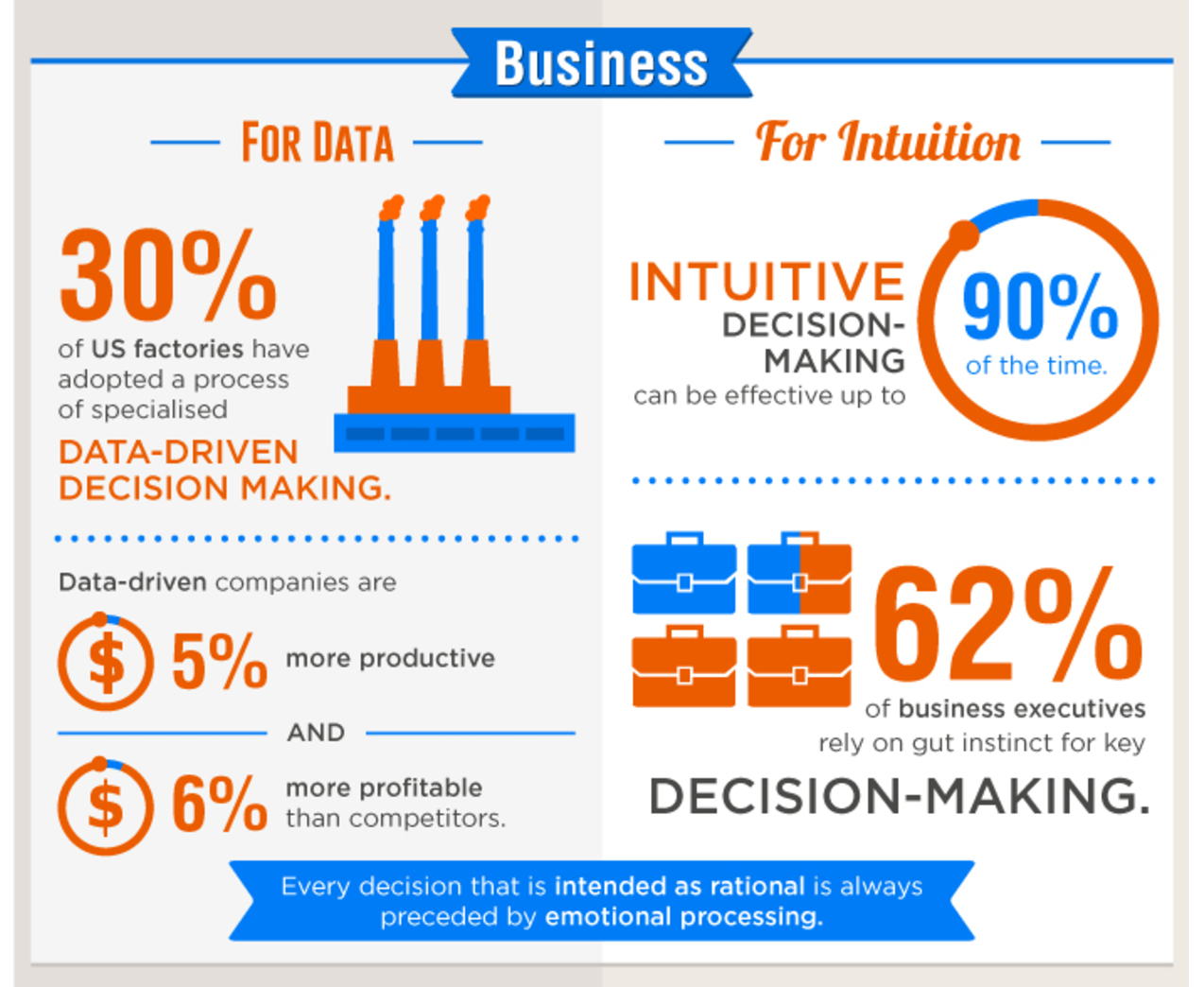
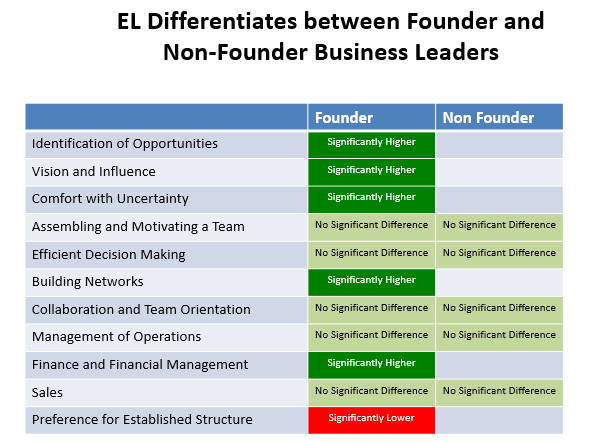
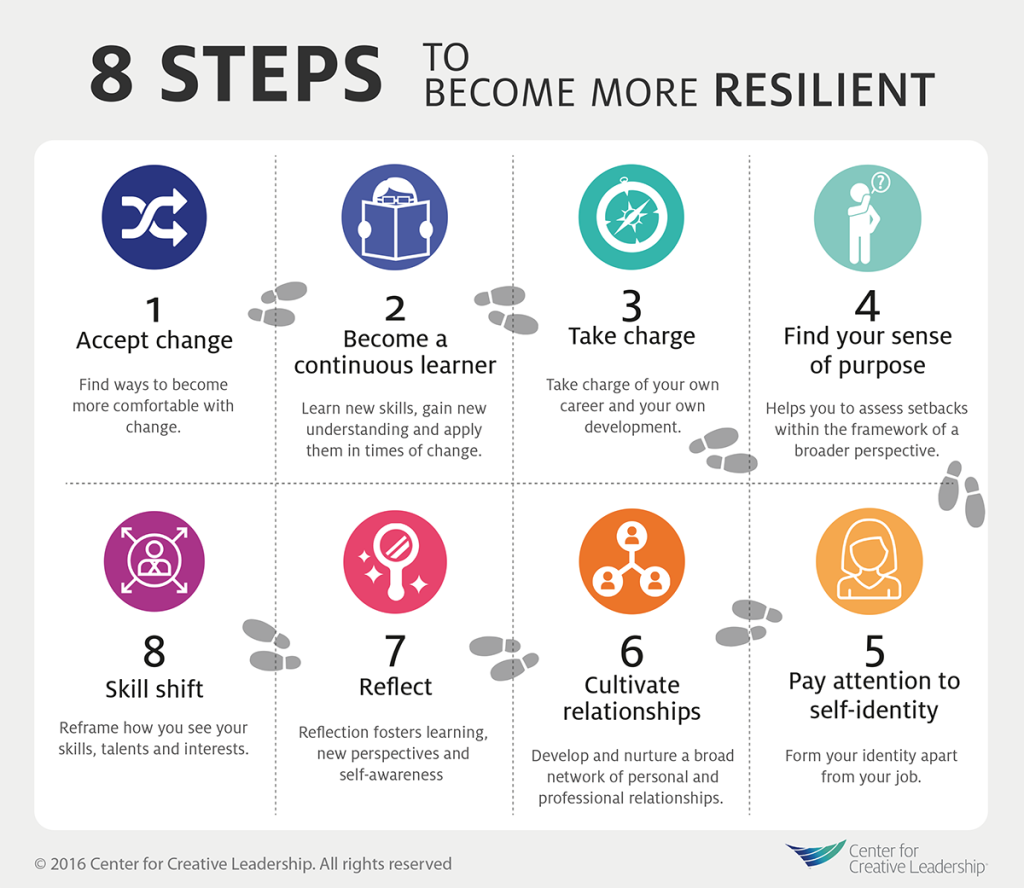
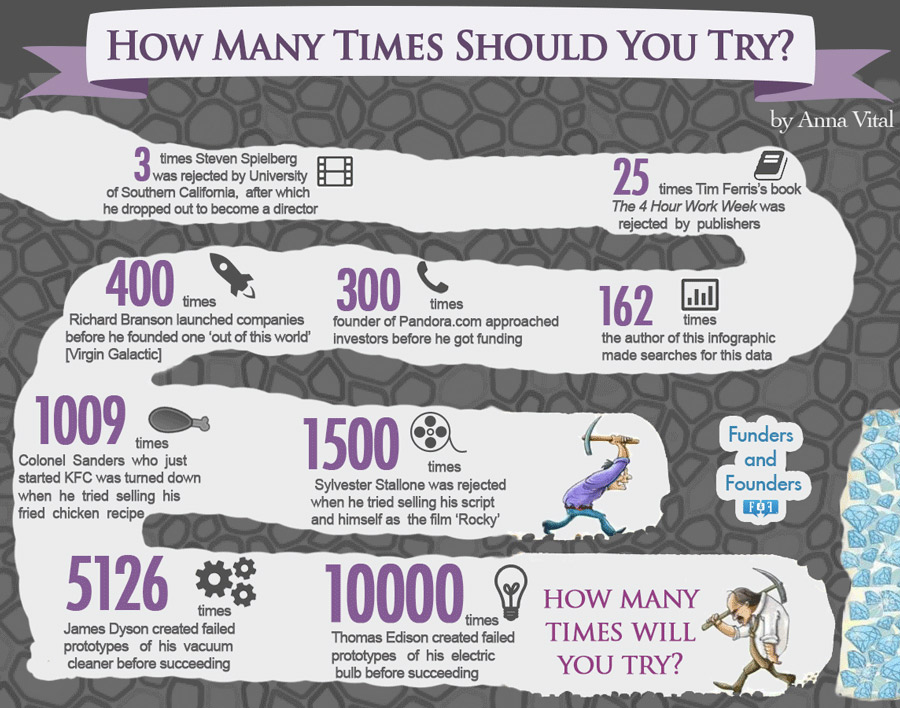
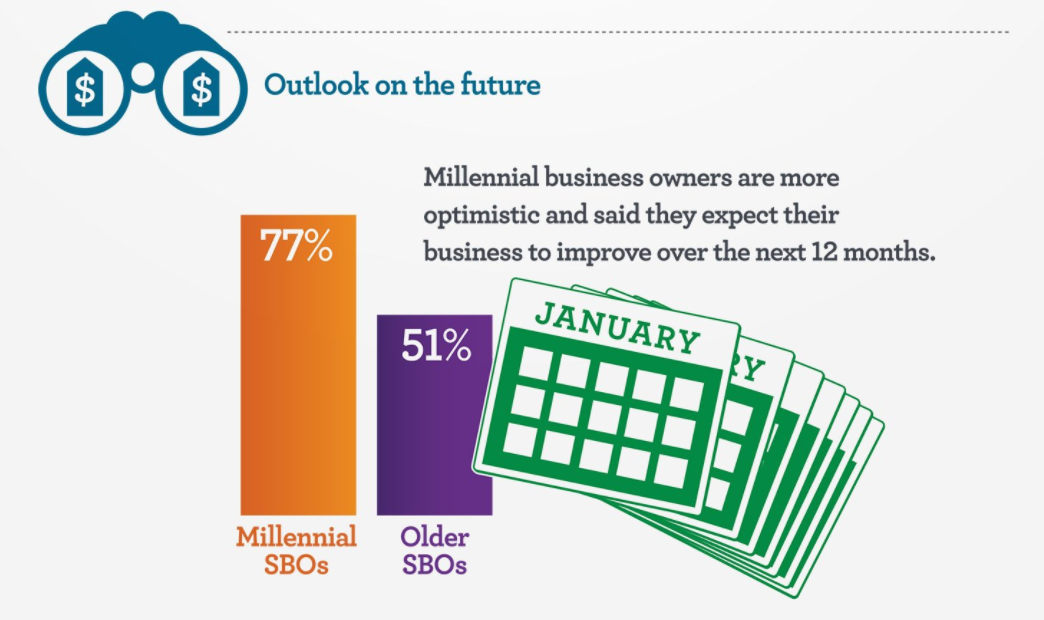
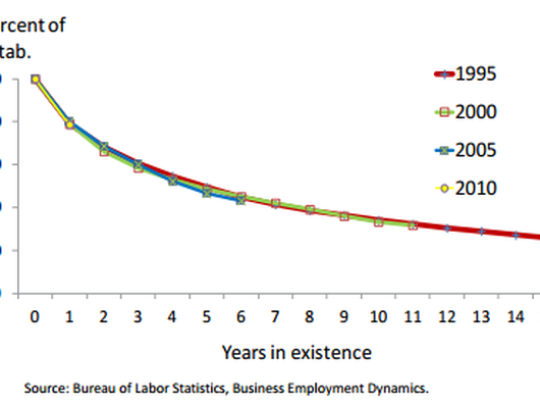
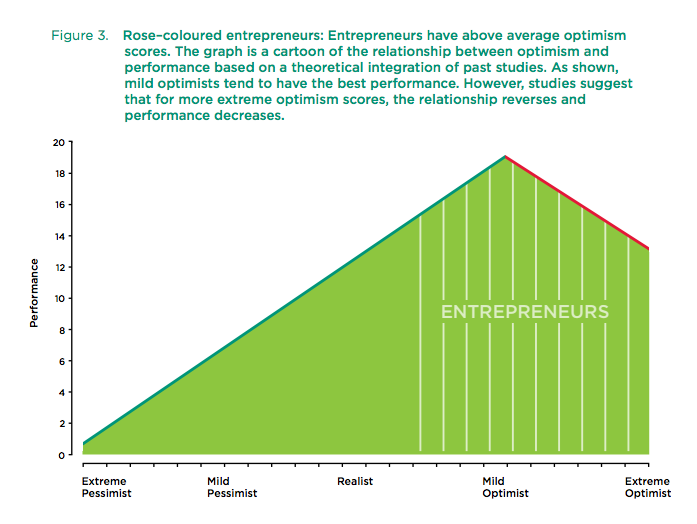
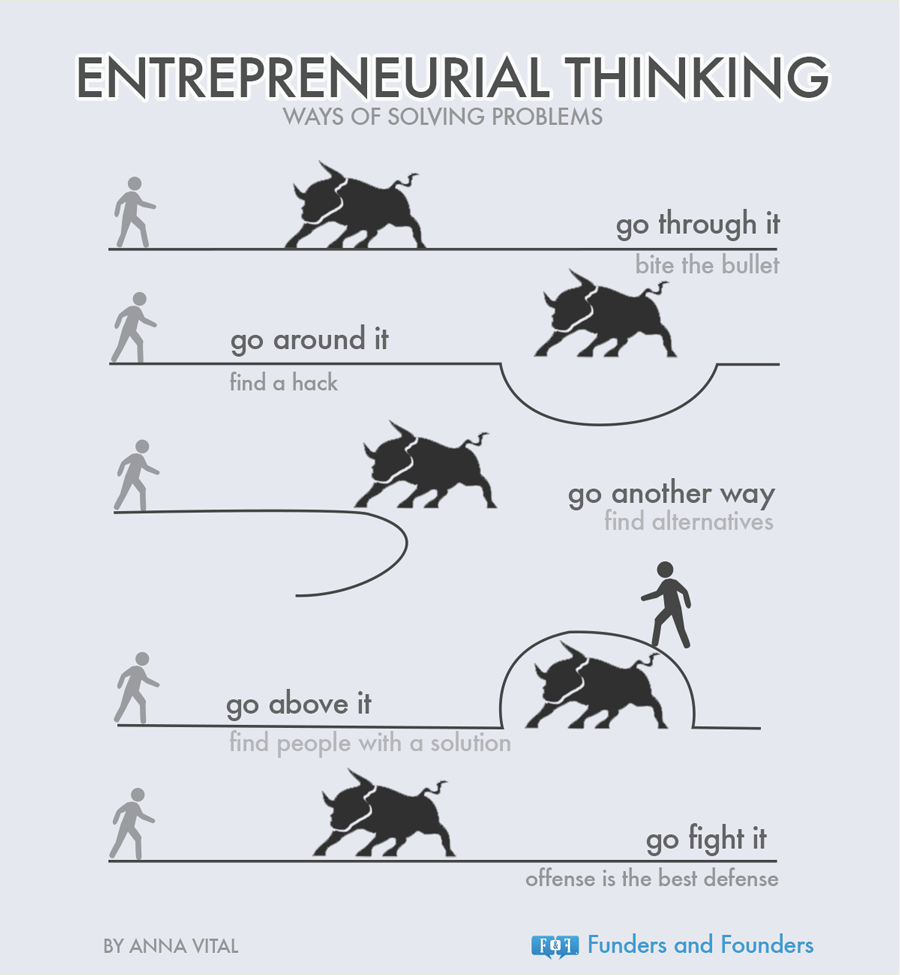
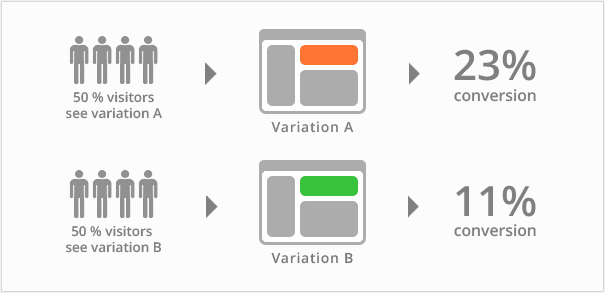
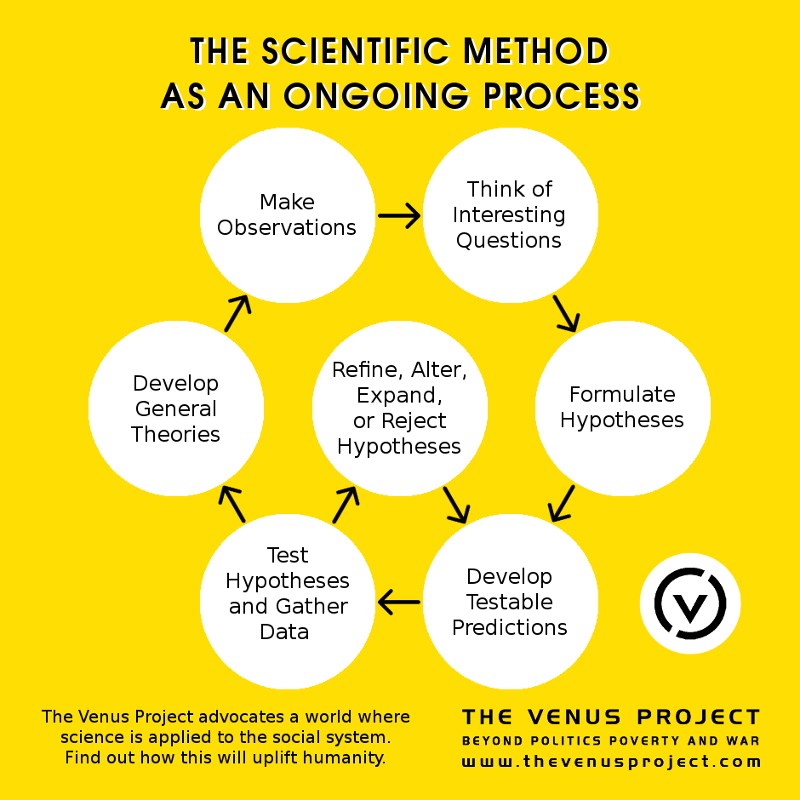
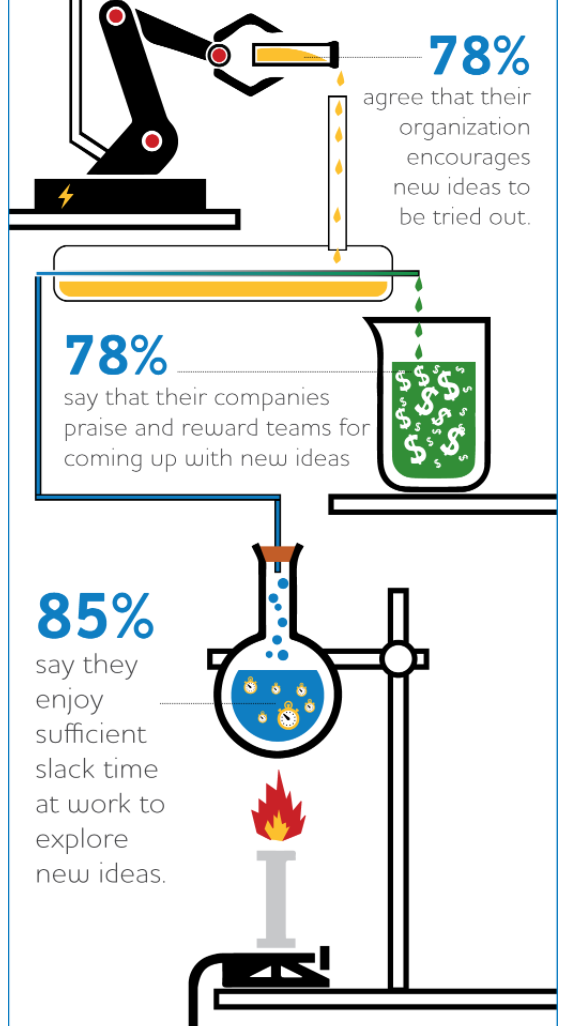
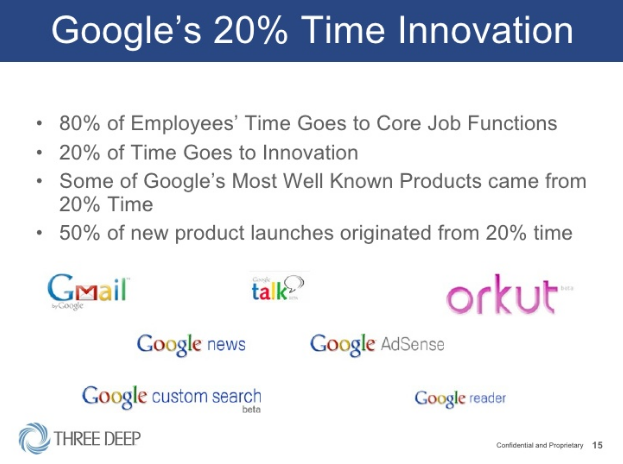
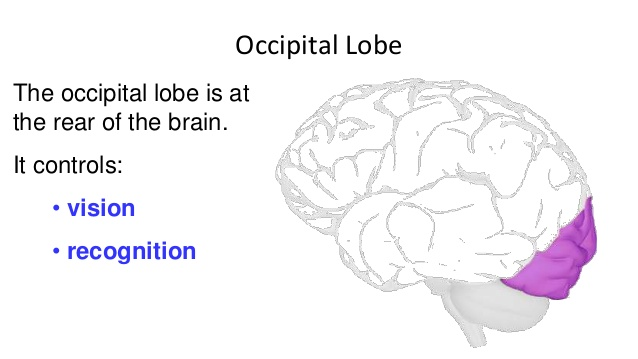
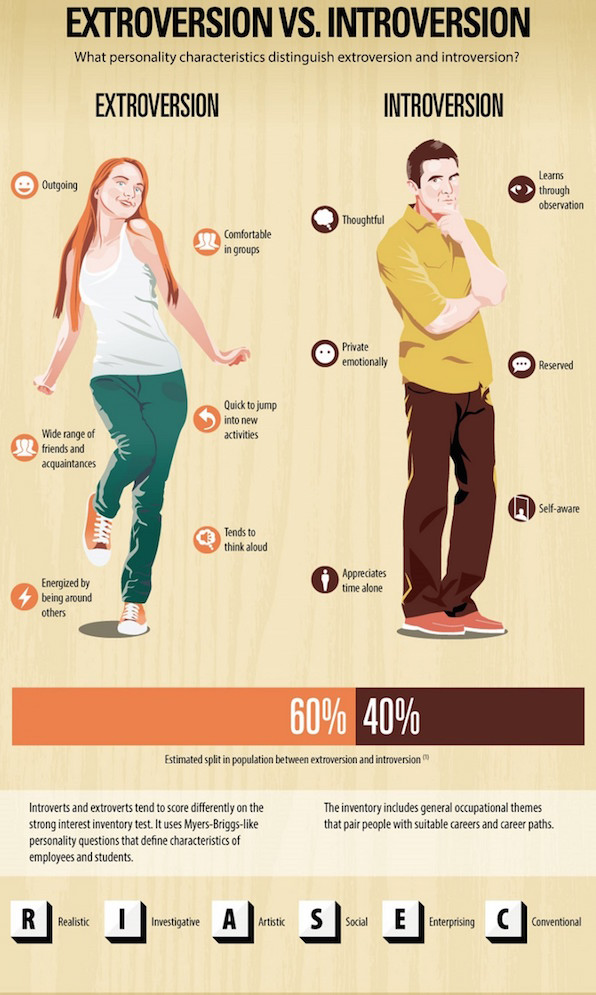
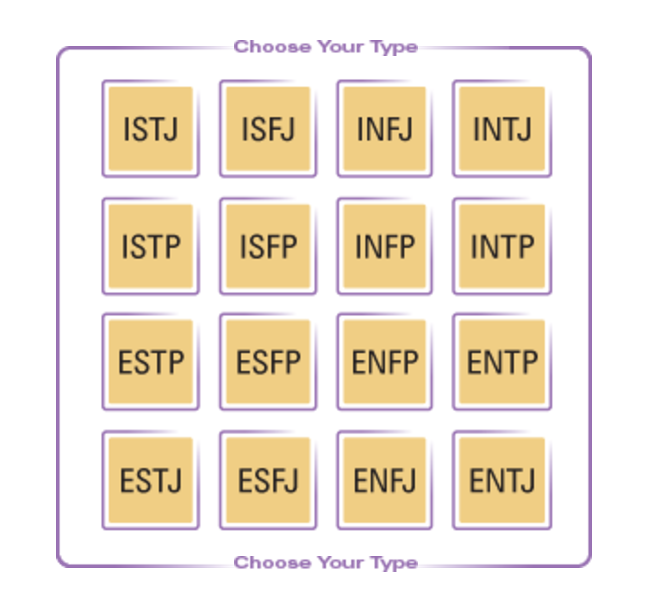
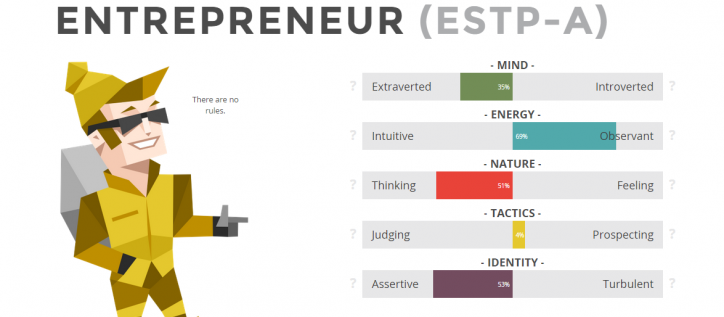
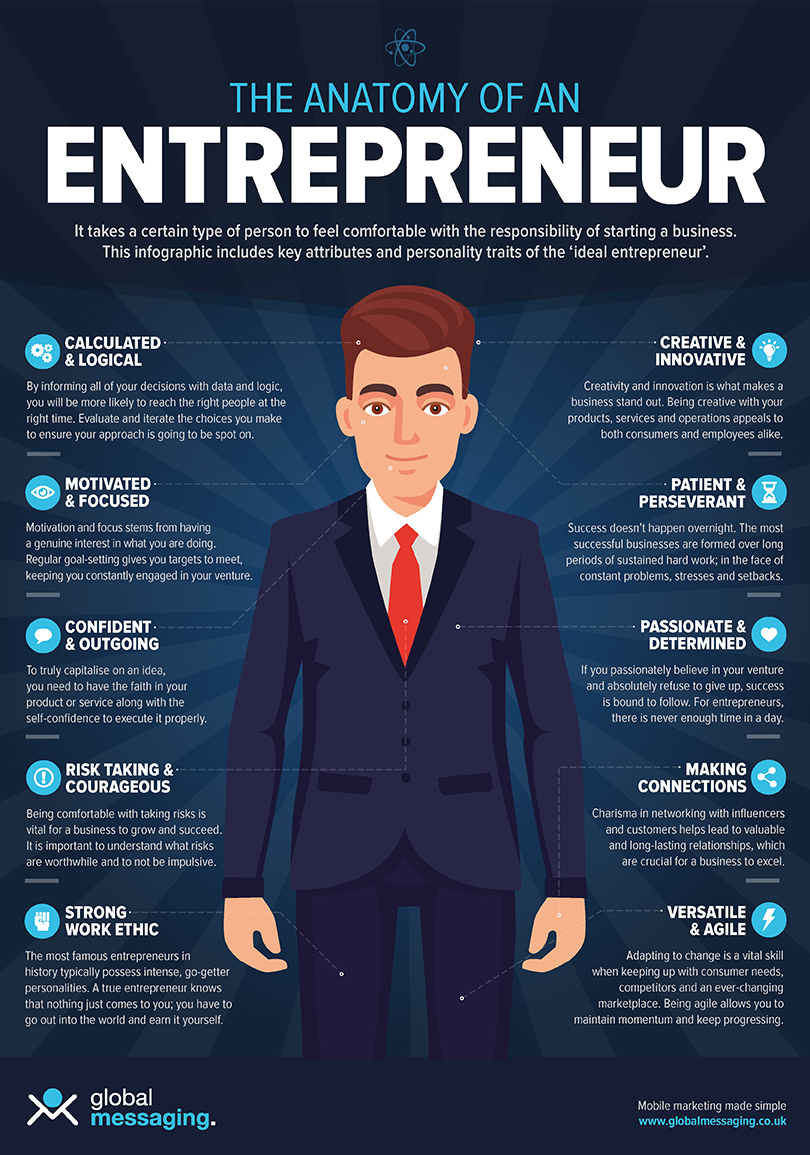
Comments (4)